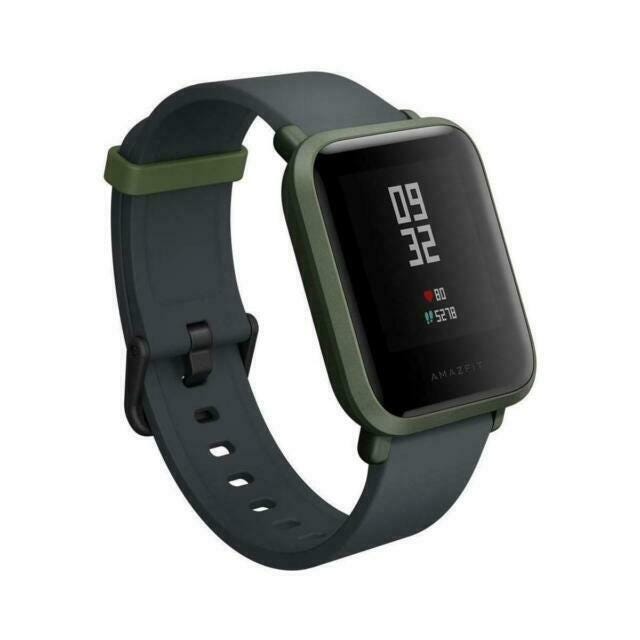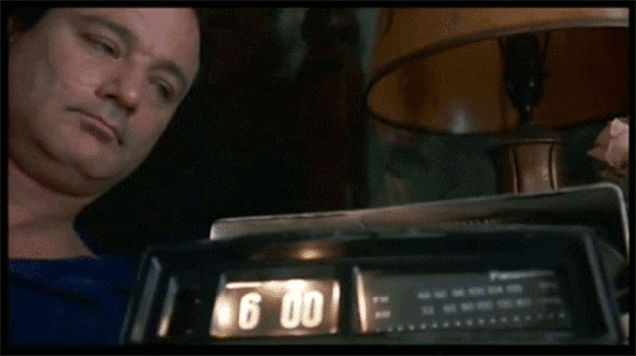The vibrating wrist alarm is without a doubt the best way to wake up in the morning.
It’s a bold statement, I know. But today I want to articulate just how amazing this has been for me over the past few years. I don’t think enough people are waking up this way, and they absolutely should be.
What is a vibrating alarm?
First things first, what type of alarm am I talking about specifically? I personally wear an Amazfit Bip (horrible name I know) on my wrist when I sleep each night. It’s a very basic smartwatch that I still recommend as my top smartwatch pick. For our discussion today, it has two excellent features. A strong vibration motor, and fantastic battery life. Both of these are key if you’re relying on it as an alarm.
There are plenty of other watches that have vibration motors these days. Most of them are smartwatches, but there may also be a few other classic digital watches that have this function. It’s pretty simple. You strap the watch to your wrist, you enter in the time you want to wake up, and then you’ll feel a gentle vibrating pulse when the time has come. There is nothing radical about this, but I’m surprised that it hasn’t become the default alarm style for more people.
The history of alarm clocks
For years, we had to rely on big bulky alarm clocks to wake us up. Maybe they used the old fashioned bell or maybe they emitted some sort of awful beeping or chirping sound. You may have even had one that would wake you up to the sound of the radio (or more likely static) or a specific song on CD or (gasp!) cassette tape. Give me credit, I’m not that old but I do recall my parents having variations of these things.
This was all we knew for years! Maybe you’d have a fancy phone wakeup call if you were staying at a hotel. That was a novelty that barely lives on today. I always found it strange to make a real human (or later, an automated robo-call) call you to wake up when there was already an alarm clock in most hotel rooms.
Then we all got smartphones and things changed. I’ve written about how you should stop using your phone as an alarm clock and I still feel that way. My guess is that most of you reading this probably use your phone as an alarm clock. There are ways of using your phone as an alarm that aren’t terrible, but I still don’t recommend it. You should keep it in another room so you have to physically wake up and walk to turn it off. And if you are going to use it for an alarm, at least choose a sound that you really love! Please don’t just use the default alarm sound, your ears will thank you. Your brain will function better if the first thing it hears is something pleasant.
Why the vibrating alarm works for me
I know that there are plenty of you that wear some type of smartwatch everyday already. Use the vibrating alarm on your watch if you have one! If you’ve never tried it, you will be in for a treat. Here are a few reasons why.
1. It will only wake you up. Even the most powerful vibration motor won’t be too loud if it’s only vibrating against your soft skin. If you have a partner sleeping with you in bed (human/canine/feline, I won’t judge) they won’t hear it! It’s such a courtesy to allow your partner to sleep later than you if they choose to. Not every couple needs to wake up at the same time.
2. There is really no residual context to this vibration. What do I mean by that? You know how you can be triggered if you hear a sound that is similar to your audio alarm? Sometimes you’ll hear a similar sound and be reminded of how awful it felt to wake up this morning when your alarm went off. Or maybe you have a song that you used to love, but after it woke you up for months on end you don’t want to listen to it anymore.
Anyone remember Bill Murray’s reaction to hearing “I Got You Babe” every morning in Groundhog Day? He was smashing the alarm clock and attempting suicide (sure maybe it was some existential dread about never seeing February 3rd, but the song also wore on him!)
Just imagine if Bill (aka Phil, Phil Connors!) had a gentle buzz on his wrist every morning instead!
And here is a third bonus reason why the wrist alarm is so great. It’s versatile! Sure, you can use it to wake you up after a night of slumber. But it’s also great for a reminder to take a walk if you’ve been at your desk for a while. Or you could also use it break up your day and remind you of meetings or tasks that need to get done. The on-screen notifications and pop-ups on your computer can only do so much. You may not have your phone in your hand but your wrist is always there waiting for a gentle buzz to help get you through the day.
Conclusion
I’m also a supporter of sleep tracking devices that can wake you up when they detect you’re already in a light sleep and will feel less groggy. I’ve been wishing for a tiny vibration motor in my Oura Ring for years as an easy wakeup call at just the right time in my sleep cycle. Alas, it would add some bulk and reduce the already questionable battery life of the ring.
I also want to be clear that I’m typically in favor of just waking up naturally when your body has gotten all the rest it needs. I know that people laugh at me when I suggest that though. We all have busy lives and typically need to be awake at a very specific time to get to exercise, get to work, or take care of the family. Sometimes the more important alarm is the one that we set before bed. Yes, if I’m reminded to get to bed early, I’m much less likely to need an alarm of any sort to wake me up on time.
But if you do find yourself needing an alarm, join me in the vibrating wrist alarm revolution! What are you currently using as an alarm, anyone else already using the vibrating watch?
Thanks for reading, I’ll see you next week!
P.S. - Are you looking for a coach? I’m looking to work with some potential new clients and would love to help you out. Click here for more info!



